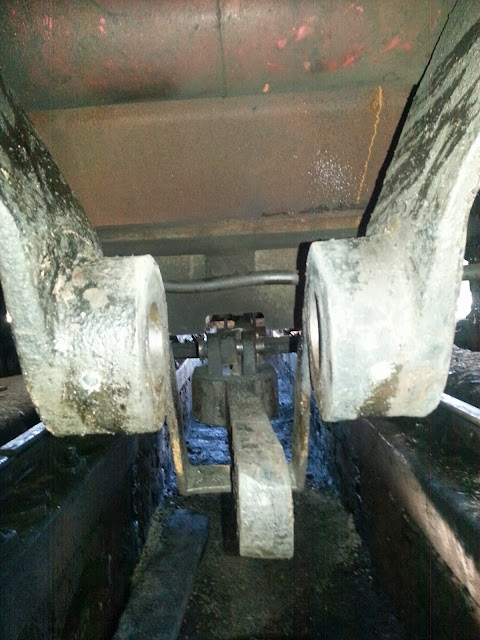With the brake completed I was able to have a look at a couple of steam leaks in the cab. These have been attended to and will be checked out when we next steam the loco.
Colin Vaughan is starting to press Rileys for news on the replacement tender tyre forgings which are now becoming overdue relative to the six week delivery lead time that was quoted when they were ordered...
 |
| The heavy lifting squad - Tommy MacDonald, Calum Titley and Roddie McRae relaxing after getting the loco brake cylinder back into place under the dragbox.. |
 |
| The steam brake cylinder fully back in place and all pipework reconnected and ready for a steam test... |
 |
| The brakes adjusted.... |
 |
| The loco waits behind closed doors on one of these beautiful cold and very sunny late Autumn days in Strathspey.. |
 |
| Waiting in the shadows..... |
 |
| Something that I hope we'll see again in 2017... CR828 and 46512 on a special double headed working for the benefit of the Strathspey Railway members and supporters.. |























